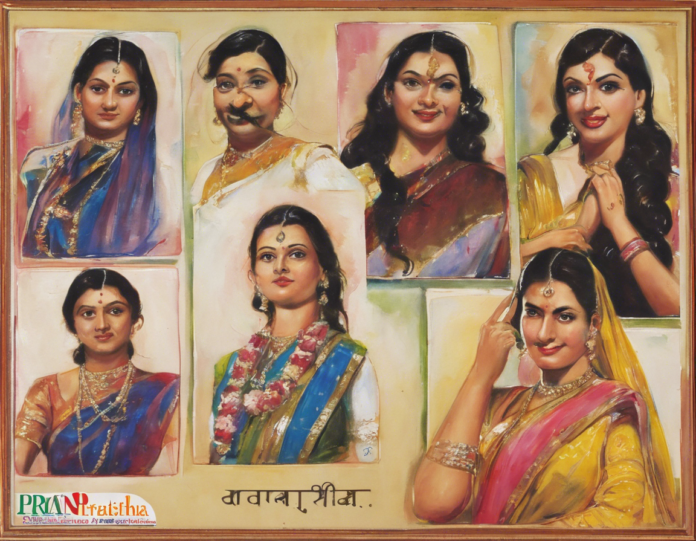Introduction
In Hinduism, rituals and ceremonies play a crucial role in religious practices. One of the fundamental aspects of these rituals is Pran Pratishtha, which is a Sanskrit term loosely translated as the consecration of a deity. The term Pran Pratishtha is derived from two words: Pran, meaning life force or energy, and Pratishtha, meaning establishment or installation. This intricate ritual involves invoking the divine presence into an idol or deity, thus imbuing it with spiritual energy and significance.
The Ritual of Pran Pratishtha
Pran Pratishtha is a sacred ceremony performed by qualified priests known as Pujaris or Pundits. The ritual typically takes place in temples, although it can also occur in homes or outdoor settings for personal pujas (worship). The process begins with the crafting or selection of an idol or murti (statue) of the deity to be worshipped. The idol is usually made of metal, stone, wood, or clay and is carefully sculpted according to specific iconographic guidelines outlined in ancient texts.
Key Elements of Pran Pratishtha
During the Pran Pratishtha ceremony, several key elements are involved:
1. Sankalp (Setting the Intention)
The ritual commences with the chanting of mantras and prayers by the Pujari, setting the intention for invoking the divine presence into the idol.
2. Invocation of the Deity
Through elaborate rituals involving offerings of flowers, incense, lamps, and food, the deity is invoked to reside in the idol and bless the devotees.
3. Prana Pratishtha Mantra
The Pujari recites specific mantras known as Prana Pratishtha Mantras, infusing the idol with spiritual energy and consecrating it as a living representation of the deity.
4. Five Elements Invocation
The Pujari invokes the five elements (Panchabhutas) – earth, water, fire, air, and space – symbolizing the cosmic energy present in all creation.
5. Aarti and Prasad
The ceremony concludes with the offering of aarti (lighted lamps) to the deity and distribution of prasad (sanctified food) to the devotees as a blessing.
Significance of Pran Pratishtha
1. Spiritual Presence
Pran Pratishtha is believed to infuse the idol with the actual presence of the deity, enabling devotees to establish a direct connection with the divine during worship.
2. Energy Consecration
Through the chanting of mantras and performance of rituals, the Pujari channels spiritual energy into the idol, transforming it into a powerful symbol of divine grace.
3. Symbolic Representation
The idol serves as a physical representation of the deity, aiding devotees in focusing their prayers and devotion towards a tangible form of the divine.
4. Blessings and Protection
By participating in Pran Pratishtha ceremonies, devotees seek the blessings and protection of the deity, fostering a sense of spiritual harmony and well-being in their lives.
FAQs about Pran Pratishtha
Q1. Can Pran Pratishtha be performed at home?
A: Yes, Pran Pratishtha can be performed at home under the guidance of a qualified priest or learned individual well-versed in the rituals.
Q2. How long does a Pran Pratishtha ceremony typically last?
A: The duration of a Pran Pratishtha ceremony can vary depending on the complexity of the rituals and the deity being invoked, but it usually lasts a few hours to a full day.
Q3. Is Pran Pratishtha a one-time ceremony?
A: While Pran Pratishtha is commonly conducted as a one-time consecration of the idol, it is essential to perform regular worship and offerings to maintain the divine presence.
Q4. What is the role of mantras in Pran Pratishtha?
A: Mantras are sacred chants recited during Pran Pratishtha to invoke the deity’s presence, channel spiritual energy, and consecrate the idol.
Q5. Can anyone perform Pran Pratishtha, or does it require specific training?
A: Pran Pratishtha is a sacred ritual that requires proper training, knowledge of scriptures, and expertise in Vedic rituals. It is typically performed by qualified priests or Pundits.
Conclusion
In the rich tapestry of Hindu rituals, the practice of Pran Pratishtha holds a special place as a sacred invocation of the divine into physical form. By imbuing idols with spiritual energy and significance, this ritual enables devotees to experience the presence of the deity and seek blessings for spiritual growth and protection. Through the intricate mantras, offerings, and devotion expressed during Pran Pratishtha, a profound connection is established between the worshipper and the divine, enriching the spiritual journey of the faithful.





